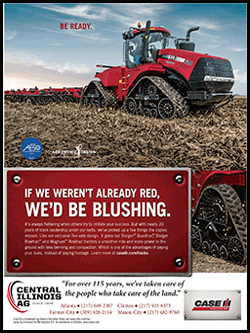|
 The ad, released late on Tuesday, shows the fashion celebrity
and reality TV star in a photo shoot when she sees protesters
marching. Removing her wig and makeup, Jenner joins the crowd
and hands a baseball cap-wearing police officer a can of Pepsi,
prompting him to smile while marchers cheer and hug. The ad, released late on Tuesday, shows the fashion celebrity
and reality TV star in a photo shoot when she sees protesters
marching. Removing her wig and makeup, Jenner joins the crowd
and hands a baseball cap-wearing police officer a can of Pepsi,
prompting him to smile while marchers cheer and hug.
"Pepsi was trying to project a global message of unity, peace
and understanding," the company said in a statement. "Clearly we
missed the mark, and we apologize. We did not intend to make
light of any serious issue. We are removing the content and
halting any further rollout."
Pepsi also apologized to Jenner. A representative for Jenner did
not return a call for comment.
The spot drew criticism on Twitter, with users saying it
belittled the anti-police violence protests over recent years in
cities including Ferguson, Missouri, and Baltimore following
police killings of unarmed black men and women.

Pepsi said the ad was created by its in-house shop, Creators
League Studio. Charlie Hopper, principal and writer at
advertising agency Young & Laramore said such backlash is a risk
brands take when they lack outside perspective.
"This is a good example of what happens when you don't get the
objective input of a classic agency relationship that can say,
'We need to save you from your worst impulses,'" he said.
'THIS AD IS TRASH'
Observers quickly condemned the ad, which did not make clear
what the marchers were protesting.
"If I had carried Pepsi, I guess I never would have gotten
arrested. Who knew?" activist DeRay McKesson, one of the
best-known voices of the Black Lives Matter movement, tweeted.
"Pepsi, this ad is trash."
Bernice King, daughter of civil rights leader Martin Luther King
Jr., whose assassination occurred 49 years ago on the day
Pepsi's ad debuted, tweeted a picture of her father protesting
as an officer's hand grips his chest, with the caption: "If only
Daddy would have known about the power of #Pepsi."
[to top of second column] |
 Many on Twitter criticized the advertisement as a play on
today's Black Lives Matter movement, and circulated a 2016 image
of Leshia Evans as a point of comparison. Evans, standing
passively and wearing a dress, was detained by police in riot
gear during a protest in Baton Rouge, Louisiana, not long after
the fatal shooting of Alton Sterling by police.
It was not the first time Pepsi has touched a nerve. In 2013, it
pulled an online ad for its Mountain Dew beverage amid
complaints the spot embraced racial stereotypes and made light
of violence toward women. The ad featured a battered white woman
on crutches trying to pick out her assailant from a police
lineup featuring five African-American men and a goat.
Dr. Boyce Watkins, a social commentator and author, had called
that ad "arguably the most racist commercial in history."
Wall Street appeared unfazed by the flap, with PepsiCo trading
marginally higher at $112.17.
(The story was refiled to correct paragraph 6 to show Hopper's
title is principal and writer, not creative director)
(Reporting by Scott Malone and Tim Baysinger and Anya George
Tharakan, additional reporting by Angela Moon; writing by
Franklin Paul; editing by Meredith Mazzilli and Richard Chang)
[© 2017 Thomson Reuters. All rights
reserved.] Copyright 2017 Reuters. All rights reserved. This material may not be published,
broadcast, rewritten or redistributed.

 |